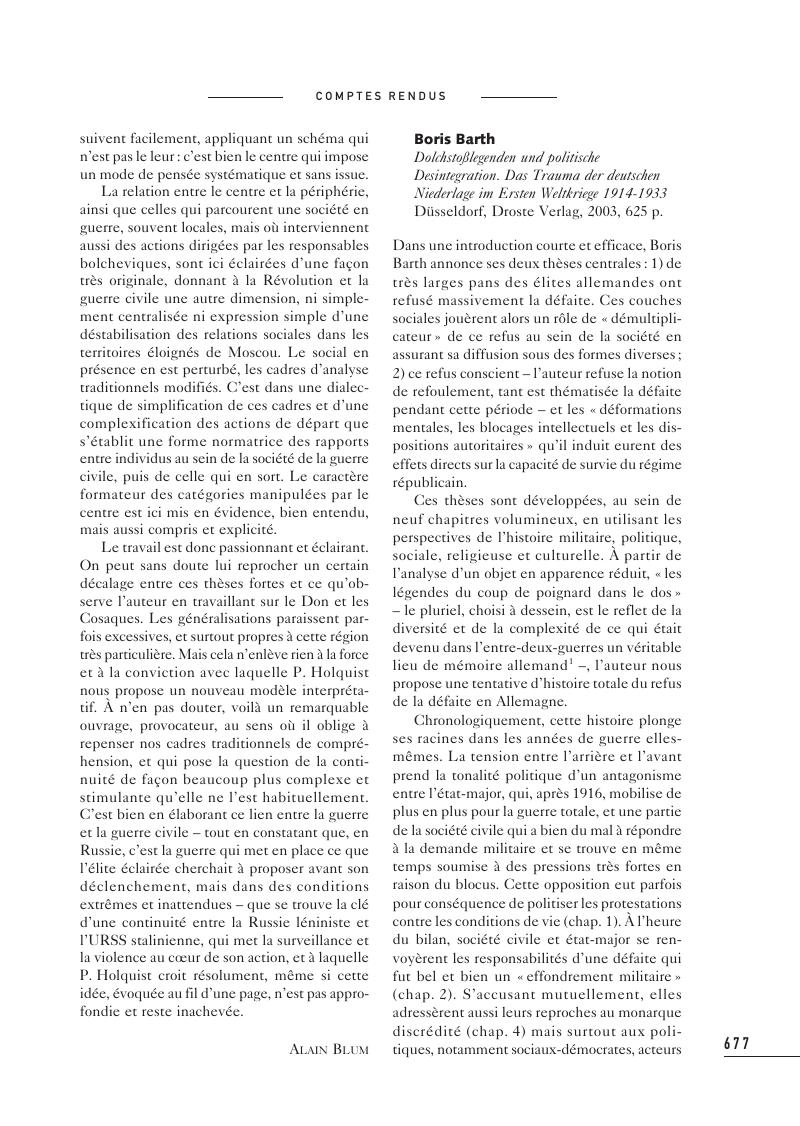No CrossRef data available.
Article contents
Boris Barth Dolchstoßlegenden und politische Desintegration. Das Trauma der deutschen Niederlage im Ersten Weltkriege 1914-1933 Düsseldorf, Droste Verlag, 2003, 625 p.
Published online by Cambridge University Press: 04 May 2017
Abstract

- Type
- Guerres (comptes rendus)
- Information
- Copyright
- Copyright © Les Éditions de l’EHESS 2004
References
1 - Krumeich, Gerd, «DieDolchstoß-Legende», in É. François, et Schulze, H. (dir.), Deutsche Erinnerungsorte, Munich, C. H. Beck, 2001, icipp. 585–599 Google Scholar.
2 - En français, on peut lire par exemple : Ingrao, Christian, «Étudiants allemands, mémoirede guerre et militantisme nazi : étude de cas »,in 14-18. Aujourd’hui-Today-Heute. Démobilisations culturelles après la Grande Guerre, 5, 2002, pp. 55–71 Google Scholar.
3 - Elias, Norbert, «Kriegsbejahende Literatur der Weimarer Republik », in Jünger, E., Studien über die Deutschen. Machtkämpfe und Habitusentwicklung im 19. und 20. Jahrhundert, Francfortsur-le-Main, Suhrkamp, 1992, pp. 274–281 Google Scholar.




